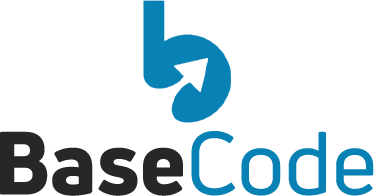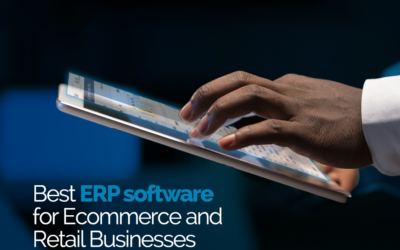When the healthcare industry leverages automation and digitalization, it is led in a direction of transformation and improved quality of life for patients.
Healthcare providers face the monumental task of delivering high-quality patient care while managing complex administrative processes. They are challenged with the pressure of dealing with daily paper-based tasks such as patient onboarding, collecting patient data, patient rounds with medical staff, billing and claims management, providing patient prescriptions, etc.
This is where process automation steps in to save the day, healthcare professionals, for example, simply don’t have the luxury of time to be filling out forms as they attend to patients. Automation has enabled many businesses in different industries to revolutionize the way they work, and applying it to the healthcare industry can lead to the same result.
By harnessing the power of automation, healthcare organizations can streamline their operations, reduce costs, and ultimately enhance patient experiences. This article discusses how automating business processes simplifies healthcare operations.
Understanding Process Automation in Healthcare
Process automation, in the context of healthcare, refers to the use of technology and software to automate repetitive and manual tasks, workflows, and processes. It involves the integration of digital tools, such as robotic process automation (RPA) and workflow management systems, to optimize the efficiency and accuracy of various healthcare operations.
Automating operational and administrative tasks in healthcare can result in a better patient experience, improved quality of medical service, reduced risk of non-compliance, and lowered costs.
The use of RPA in healthcare
Robotic process automation (RPA) is a key component of process automation in the healthcare industry. RPA software employs software robots, or bots,” to mimic human actions when interacting with digital systems and software applications.
Here are some essential uses of RPA in healthcare:
Claims processing: RPA can streamline claims processing by automating data entry, verification, and adjudication. This not only accelerates the claims settlement process but also reduces errors and fraud.
Appointment scheduling: RPA bots can manage appointment scheduling, sending reminders, and updating patient records. This minimizes scheduling conflicts and improves patient access to care.
Billing and invoicing: RPA can automate billing and invoicing tasks, ensuring accurate and timely submission of bills to insurance providers and patients. This accelerates revenue cycles and reduces billing errors.
Data Extraction: RPA bots can extract valuable insights from unstructured data sources, such as patient records and medical literature. This aids in clinical research and decision-making.
Administrative Tasks: RPA can handle a range of administrative tasks, including employee onboarding, payroll processing, and inventory management, freeing up healthcare staff for more patient-centric roles.
Process automation in operations management
Process automation is not limited to patient-facing functions in healthcare; it extends to operations management as well. Healthcare facilities, from hospitals to clinics, can greatly benefit from automated workflows and processes.
Several technologies are used to automate and simplify workflows in healthcare, and they include:
Electronic health records (EHRs)
EHR systems streamline the management of patient records, making information easily accessible to authorized healthcare providers. This enhances patient care coordination and reduces the risk of errors.
Telemedicine platforms
Telehealth and telemedicine platforms automate virtual appointments, enabling healthcare providers to diagnose and treat patients remotely. This is especially valuable in expanding access to care, particularly in underserved areas.
Inventory management systems
Automated inventory management systems track medical supplies and equipment in real-time, ensuring that healthcare facilities are well stocked and reducing waste.
Appointment scheduling software
Advanced scheduling software automates the booking of appointments, taking into account various factors like physician availability, patient preferences, and clinic resources.
Patient portals
Patient portals provide patients with easy access to their health information, appointment scheduling, and secure communication with healthcare providers.
Types of Process Automation
These types of process automation in healthcare collectively contribute to enhancing efficiency, improving patient experiences, reducing costs, and ensuring the accuracy and security of healthcare data. The choice of automation type depends on the specific processes and tasks that healthcare organizations aim to streamline and optimize.
In healthcare, there are three primary types:
Basic Automation: This involves automating simple, rule-based tasks such as data entry and appointment reminders. Basic automation improves accuracy and reduces the time spent on repetitive tasks.
Advanced Automation: Advanced automation incorporates machine learning and artificial intelligence (AI) to handle more complex processes, such as data analysis and personalized treatment recommendations. It enhances decision support for healthcare providers and improves patient outcomes.
Cognitive Automation: Cognitive automation takes automation to the next level by enabling systems to learn from data and make intelligent decisions. This is particularly valuable in diagnostic processes, where automation can aid in early disease detection and treatment planning.
The benefits of automation in the healthcare industry
The use of automation and the integration of CRM systems in healthcare offers a myriad of benefits, ultimately leading to operational excellence and improved patient care. Here are some key advantages:
Enhanced efficiency
Efficiency is at the core of process automation in healthcare. By automating tasks like data entry, appointment scheduling, and billing, healthcare providers can redirect their focus toward patient care. This results in reduced administrative burdens, shorter wait times, and improved staff productivity.
Improved patient experience
A streamlined healthcare system translates to a better patient experience. Automation ensures that patients receive timely reminders for appointments, access to their health records, and efficient communication with healthcare providers. Patients appreciate the convenience and responsiveness of automated systems, which can lead to higher patient satisfaction and loyalty.
Cost Reduction
Process automation reduces operational costs by minimizing manual labor and eliminating errors. Healthcare organizations can allocate resources more efficiently, reduce overhead, and optimize revenue cycles. This cost savings can be reinvested in improving patient care and expanding services.
Data accuracy and security
Healthcare operations rely heavily on accurate and secure data. Automation systems ensure data accuracy by minimizing manual data entry, reducing the risk of errors, and enhancing data security through encryption and access controls. This instills trust in patients and regulatory bodies.
Compliance and reporting
Healthcare is subject to numerous regulatory requirements and reporting obligations. CRM systems with automation capabilities can facilitate compliance by tracking and reporting on key metrics, ensuring that healthcare organizations adhere to industry standards and regulations.
Challenges of Using Process Automation in Healthcare
While the advantages of process automation in healthcare are significant, challenges do exist:
Integration Complexities
Integrating automation systems with existing healthcare IT infrastructure can be complex and costly. Ensuring compatibility and data exchange between different systems is a significant challenge. Having custom technologies can help elevate this challenge.
Data Quality
The accuracy and quality of data are paramount in healthcare. Maintaining clean and updated data is a continuous effort, and automation systems must be vigilant in flagging and correcting errors. One way to overcome this challenge is by utilizing the right digital transformation process and agency to ensure smooth operations of tools and processes.
Staff Training
Introducing automation into healthcare workflows requires staff training and change management. Healthcare professionals need to adapt to new processes and technology, which can lead to initial resistance.
Is process automation right for your healthcare operation?
Determining if process automation is right for your healthcare operation involves assessing your business’s unique needs, goals, and resources. Here are some considerations:
Operational Complexity: If your healthcare operation involves a high volume of repetitive tasks and data processing, automation can provide significant benefits.
Data Volume: If you handle substantial amounts of patient data, automation can improve data accuracy and reduce the risk of errors.
Budget: Consider your budget for technology investment and ongoing maintenance. While automation can lead to cost savings, there is an initial investment to consider.
Scalability: Evaluate whether the automation solutions you are considering can scale as your healthcare operation grows.
Regulatory Compliance: Ensure that any automation systems you implement comply with healthcare industry regulations and data privacy laws.
Conclusion
Process automation has the potential to revolutionize healthcare operations by enhancing efficiency, improving patient experiences, reducing costs, and ensuring data accuracy and security. While challenges exist, the benefits far outweigh them, making automation a valuable ally in the pursuit of operational excellence in healthcare.
If your business has already started with digital transformation and you want to get more out of it, or if you are just starting out to automate your business, learn how Basecode Tech can help you get more out of your processes. Book a free discovery call and we will help you start.





0 Comments